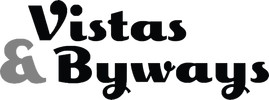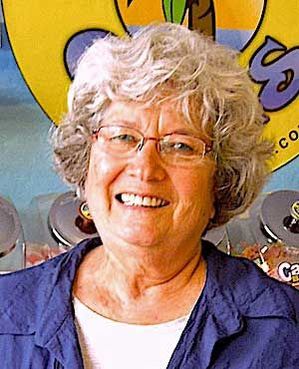Broken Connection
|
|
Driving to work, I listen to a father-daughter interview on the radio. The father lives with a piercing, high-pitched tone penetrating his waking moments. He has no experience of silence. His daughter, born with severe hearing loss, wears aids that enable her to hear most sounds. But she cannot hear a simulation of the sound in her father’s head because sounds at that pitch are still inaccessible. She can’t imagine what that must be like. He can’t imagine life without it.
My son, Mark, calls me to cancel his lunch date with his 94-year-old grandmother. He asks me to apologize. “I would call her myself,” he explains, “but she can never hear me.” “Even on her bedroom phone?” I ask, but I know what effort it takes. At dinner, my mother and I sit at the table, quiet, my mother concentrating on her food. Her hand, gnarled by arthritis, tremulously lifts a forkful of spaghetti. She uses her other hand to help lift the long strands into her mouth. “Mark called. He needs to change your lunch date,” I say. “What?” she asks, looking up from her plate. “Mark called.” I speak more slowly and deliberately. “He’s sorry he can’t meet you for lunch tomorrow. He wants to make another date.” “He wants to wait?” “No.” Now I speak loudly, pausing between words. “He...wants...to...take ...you out...next...Wednesday.” “Next Wednesday? I’ll have to look at my calendar.” Her calendar is sparsely dotted with medical appointments. “Why can’t he come tomorrow?” “He has to go to a meeting. Something to do with his promotion.” “What motion? You’re talking too fast. I don’t know what you’re saying.” I want to say, “Read my lips,” but that’s what she’s trying to do. Her hearing aids seem to help less and less. I sigh, raising my voice, “Mark’s ...sorry...he...has ...to ...change... the ...date.” “You don’t have to shout,” she says. “I can hear you.” I grind my teeth, biting off the smart-ass retort I’m tempted to fling at her. I’m weary and she is, too. My food looks tired and cold. “I’m going to reheat my dinner. Do you want me to heat yours?” “They’re all too busy,” she declares, “not enough time for what’s important. If you’re heating your food, will you do mine, too?” ***
In fourth grade, I cheated on the hearing test.
We sat at our desks, rows of undersized phone operators with headsets covering our ears. The tester had explained, “I’ll call a number and then, if you hear a sound, mark your papers with a checkmark next to that number. Sometimes there will be no sound. Then you don’t make a mark. Listen carefully.” At the first few sounds, we put heads down, pencil to paper, like the nursery rhyme, “Little maids all in a row,” our heads bobbing to the tinkle of the bells. Then no sound—heads and hands still—but then I saw heads bobbing and pencils going down when I heard no sound. When it happened a second time, I felt a cold rush of fear. Why couldn’t I hear the sounds? Should I tell the lady? I heard a sound again and put my pencil to the paper, wanting to cry. After that, I just moved my pencil to the paper when I saw heads bob, terrified I’d be found out. When the test ended, I ran from the room. I waited to hear about the test results, waited for my parents to be called. I never heard anything and never told my parents what I’d done. Eventually, I forgot the test and my dread. ***
The awareness of loss seeps in slowly. You find yourself asking, “Could you please repeat that?” You’re surprised so many people swallow their words and mumble. You play voice messages twice. People speak too quickly. You find yourself smiling and nodding your head in response to a flurry of words running together just out of your reach. Lying on your right side, you can’t hear your clock ticking.
***
I’m sitting in the audiologist’s testing booth. The door is closed. I’m wearing the headphones again, but now I’m 60 years old, alone in this still, small, windowless room.
When the test begins, I travel back to that fourth grade desk. This time I can name the fear. I’m losing my hearing and will eventually lose vital connection with others. Like my mother and her mother, I’ll be shut out and alone. I strain to hear the sounds, not wanting to miss a tone. I want to be whole and unblemished. This time, no cues or bobbing heads guide me. I press the button when I hear sounds, guess at others and accept some silences, my hand lying still. ***
Now I wear hearing aids that amplify sound but sometimes distort it so words run together in an alien tongue. I try to lip read to make sense of the garbled sounds. Sometimes, weary, I just let the sounds roll over me. And sometimes, when the hearing aid squeals, I remember the father on the radio and wonder if this is the sound constantly assaulting him. I remember my mother struggling to capture fading sound and cope with loss of connection, and I wonder how I’ll be able to live with that when it’s my turn.
***
I’m sitting in a small, well-lit classroom with my peers. This time, we aren’t wearing headphones. Most of us wear graying hair and furrows of concentration as we study the movement of the instructor’s mouth. We’re in lip reading class at the local senior center, facing the instructor and the captioning on a screen behind her. We’re focusing on consonants, trying to do the nearly impossible—differentiate between muh, buh, and puh sounds at the beginning of words. The instructor enunciates the words mat, bat and pat as we look for subtle differences in the shape of her lips.
She comforts us, “Not all consonants are so difficult. And you can use context. And you must practice. Please take out your mirrors. Does anyone need to borrow one?” Gazing into my mirror, I study the movement of my lips as I form the list of muh, buh and puh words, trying to appreciate the wrinkles and puckers around my mouth as guidelines, helpful tools to lip reading, nothing more. Next, when my partner and I mouth words to each other, I’m encouraged to see the deeper puckering above her upper lip when she forms words that begin with the letter p. Small triumph, but this is what it’s about. At the end of class as I walk out to my car, I am smiling. I wonder what this looks like in my mirror. |
|
About Elinor Gale
click to read Bio
|
Please Comment
click to open a comment box |





